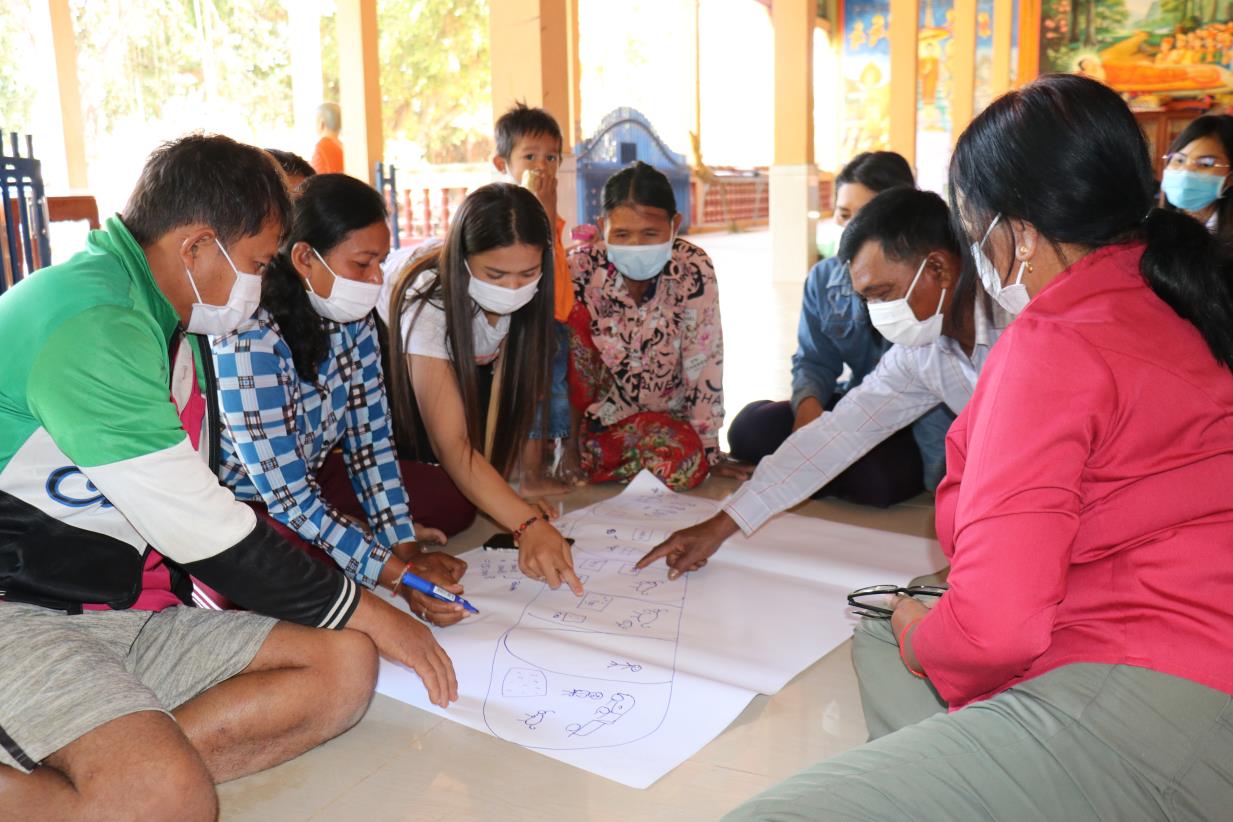Shifting mindsets on gender for rural development, food security and nutrition in Cambodia
The objective of the FMM project is to contribute to closing the gender gap in agriculture by enhancing rural women’s economic empowerment and strengthening their crucial role in rural development, decision-making and resilience building.

Farmers carrying out the Vision Journey exercise, which is part of the WE-FBS approach. ©FAO/Verdiana Biagioni Gazzoli
On the occasion of the International Women’s Day (IWD) on 8 March, the government of Cambodia and the FAO Representation in Cambodia have called for robust efforts against gender-based discrimination and bias through investments in local capacity development and ownership, highlighting the progresses in this direction made by their joint activities under FAO’s Flexible Multi-Partner Funding Mechanism (FMM).
“If we want to foster women’s economic empowerment in a sustainable way, we must advance a long-term vision that addresses the root causes of gender inequalities,” said H.E. Hor Malin, Secretary of State of Cambodia’s Ministry of Agriculture, Forestry and Fisheries (MAFF) and Head of the Gender and Children Committee. She added that, “This is precisely what we are focusing on. Through our joint work with FAO, we aim to promote a legacy of capacities and knowledge that will enable women and men to critically reflect on their social attitudes, shift their mindsets, and hence have the opportunity to thrive in equal terms.”
Ms Rebekah Bell, FAO Representative in Cambodia, stressed how crucial gender equality is for long-lasting food and nutrition security: “Achieving Zero Hunger requires closing the existing gender gaps through transformative approaches that induce new ways of thinking among individuals, households, communities, institutions, policies and legislation.”
Under the FMM subprogramme Gender Equality and Women’s Empowerment in Food and Agriculture, the government and FAO are piloting two gender transformative approaches in the context of food and agriculture for the first time in the region: namely the Dimitra Clubs (DCs) and the Women’s Empowerment Farmer Business Schools (WE-FBS).
Learn more
